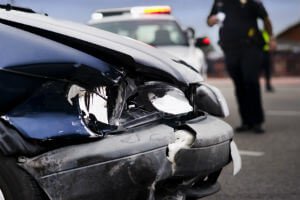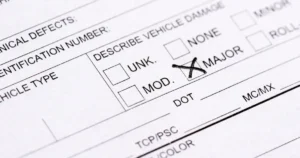 Car accidents involving a police vehicle are handled differently since these vehicles are government-owned. If a driver or pedestrian is hit and injured by a police car, he or she may assume that the police have some immunity.
Car accidents involving a police vehicle are handled differently since these vehicles are government-owned. If a driver or pedestrian is hit and injured by a police car, he or she may assume that the police have some immunity.
However, under Indiana’s Tort Claim Act, you could be eligible to take legal action and recover damages against a government entity, including police officers.
Pfeifer, Morgan & Stesiak discuss Indiana’s government immunity law and the types of damages that may be recovered in these cases. An initial consultation to learn more about your legal options is 100 percent free. There is no risk in calling our firm and no obligation to retain our services.
Understanding the Indiana Tort Claims Act
The Indiana Tort Claims Act offers legal protection to local and state government entities (including police officers) from being sued by individuals in many circumstances. The act outlines when the government may or may not be held liable for the actions of its employees. In most cases, the government is immune from liability. The law does not allow you to file a claim against them.
There are certain exceptions that exist. Indiana’s Tort Claim Act does cover claims that arise from car accidents with a government-owned vehicle. When someone is injured in a car accident caused by the negligence or wrongful act of a police officer, he or she could be eligible to take legal action. The right to recover damages may have its limitations.
Filing a Tort Claim Against a Police Officer
Police officers acting within the scope of their duties generally cannot be held liable for their actions. Instead, you can file a tort claim against the State of Indiana where the government employee works. This would mean taking legal action alleging that the police officer committed an act of negligence and that this negligence directly led to you being injured.
In Indiana, you have the right to file a tort claim against another party when negligence is the direct cause of accidents and injuries. There are special rules that must be followed for filing these claims.
Rules for Filing a Tort Claim in Indiana
In order to take legal action, you must file a formal Tort Claim Notice form as soon after the date of the crash involving a police car as possible. Under the law, it must be filed within 270 days. Failure to file your notice of claim within this timeframe will likely result in losing your right to pursue compensation for your injuries and damages.
Once your notice of claim is filed, the Indiana Office of the Attorney General will investigate the claim. You should receive notice within 90 days that your claim has been approved. Otherwise, it likely means that your claim was denied. When this happens, you have the right to file a lawsuit in civil court.
Our South Bend car accident lawyers are experienced in tort claims and are prepared to guide you through the legal process. There is no risk in calling us to learn about your rights in a free consultation.
Does Comparative Fault Apply in These Cases?
When determining liability after a car accident and other personal injury cases, Indiana follows a doctrine of comparative fault. You could still recover damages even if you are partially at fault for your injuries. A jury determines the percentage of fault for all parties involved.
However, comparative fault does not apply in cases against government entities. Indiana’s Tort Claims Act follows a doctrine of contributory negligence. If you are found to be at fault – even one percent – for the accident and your injuries, you will not be able to recover damages.
Limits on Damages in an Accident With the Police
There are limits to the amount of damages that can be recovered when filing a claim against the state of Indiana and government entities. Under Indiana Code 34-13-3-4, damages for accidents that happen after January 1, 2008, are capped at $700,000 for the injury or death of another.
If more than one person is injured or killed in the crash, the damages would be capped at $5,000,000, regardless the number of people involved. Punitive damages, which are meant to punish the at-fault party for gross negligence or malice, are not allowed to be sought.
Get The Legal Help You Need Today
After a car accident involving a police vehicle, you have a right to pursue compensation for your losses. Unfortunately, claims against police officers and other government entities are often complex. This is why you may benefit from having a lawyer on your side to protect your interests and help you to pursue the compensation you need.
Our legal team at Pfeifer, Morgan & Stesiak is ready to review your situation and discuss your potential legal options in a free consultation. There are no upfront fees. We only get paid if we recover compensation on your behalf.
Give our firm a call or text 24/7 at (574) 444-0741.




